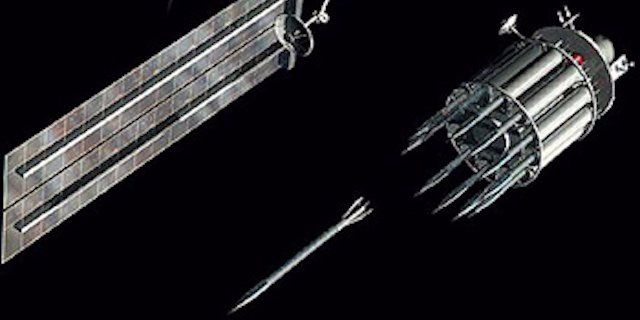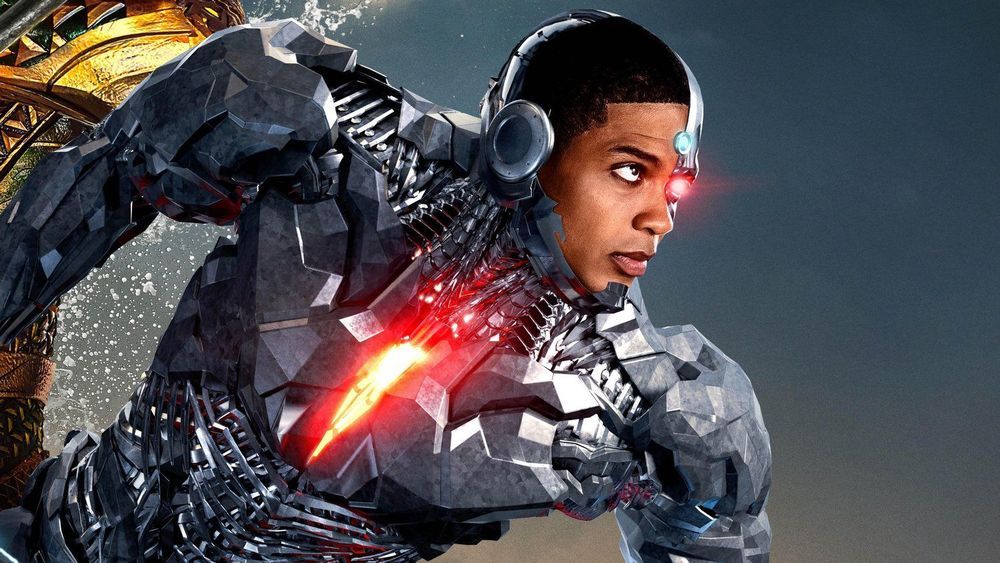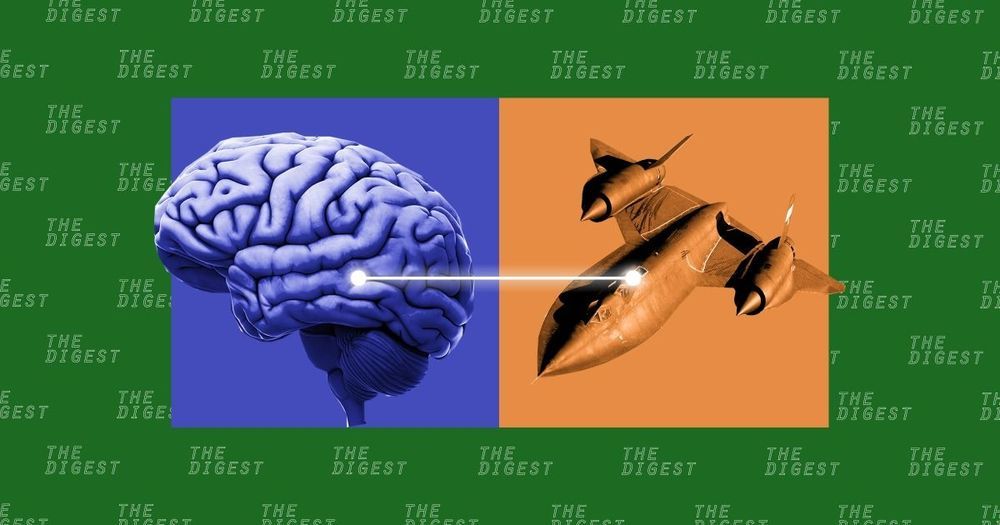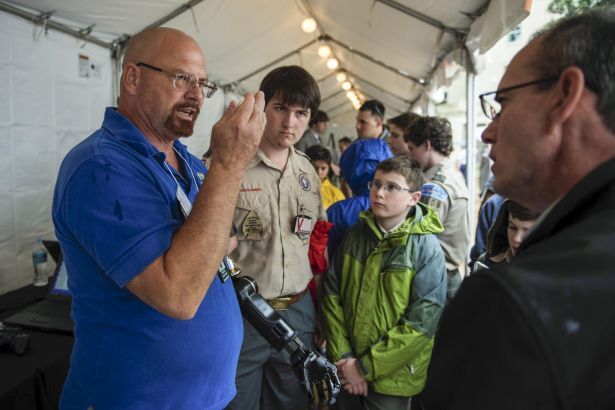British tabloids recently suggested nuclear weapons could trigger killer waves, but science is not on the side of this idea.



Circa 2015
The Plasma Acoustic Shield System (PASS) is a crackling, flashing wall of light hanging in the air up to 100 meters away. And while it’s the stuff of sci-fi, the laser-powered PASS already exists in prototype form, built by Stellar Photonics of Redmond, Wash., with funding from the Pentagon’s Joint Nonlethal Weapons Directorate (JNLWD).


China is developing a satellite with a powerful laser for anti-submarine warfare that researchers hope will be able to pinpoint a target as far as 500 metres below the surface.
It is the latest addition to the country’s expanding deep-sea surveillance programme, and aside from targeting submarines — most operate at a depth of less than 500 metres — it could also be used to collect data on the world’s oceans.
Project Guanlan, meaning “watching the big waves”, was officially launched in May at the Pilot National Laboratory for Marine Science and Technology in Qingdao, Shandong. It aims to strengthen China’s surveillance activities in the world’s oceans, according to the laboratory’s website.

With the dropping of the INF treaty, Putin and Trump have brought the dangers of nuclear war back into a more realistic possibility. I’m not posting this to engage in a political discussion but nuclear war is definitely a lifeboat type of issue.
Russia’s military and state-sponsored media have reacted with a fire and fury of their own to the news that the US will exit the Intermediate Nuclear Forces treaties, one of the last barriers to a full-on Cold War-like arms race in Europe — and there’s already talk of a nuclear doomsday device visiting the US.
The INF treaty banned land-based nuclear capable missiles with a range between 300 and 3,200 miles in 1987 when Russia and the US had populated much of Europe with intermediate-ranged nuclear missiles. The ban eliminated this entire class of missiles and went down as one of the most successful acts of arms control ever.
The US and all of NATO concluded recently that Russia had spent years developing a banned nuclear-capable weapon, thereby making the treaty meaningless. The US responded by saying it would withdraw and design its own treaty-busting missiles. Russia said it would do the same, though many suspect they already have the missiles built.

The 107-country Outer Space Treaty signed in 1967 prohibits nuclear, biological, or chemical weapons from being placed in or used from Earth’s orbit.
What they didn’t count on was the US Air Force’s most simple weapon ever: a tungsten rod that could hit a city with the explosive power of an intercontinental ballistic missile.
During the Vietnam War, the US used what it called “Lazy Dog” bombs. These were simply solid-steel pieces, less than 2 inches long, fitted with fins.

Over the last decade, military theorists and authors in the fields of future warfare and strategy have examined in detail the potential impacts of an ongoing revolution in information technology. There has been a particular focus on the impacts of automation and artificial intelligence on military and national security affairs. This attention on silicon-based disruption has nonetheless meant that sufficient attention may not have been paid to other equally profound technological developments. One of those developments is the field of biotechnology.
There have been some breathtaking achievements in the biological realm over the last decade. Human genome sequencing has progressed from a multi-year and multi-billion dollar undertaking to a much cheaper and quicker process, far outstripping Moore’s Law. Just as those concerned with national security affairs must monitor disruptive silicon-based technologies, leaders must also be literate in the key biological issues likely to impact the future security of nations. One of the most significant matters in biotechnology is that of human augmentation and whether nations should augment military personnel to stay at the leading edge of capability.
Military institutions will continue to seek competitive advantage over potential adversaries. While this is most obvious in the procurement of advanced platforms, human biotechnological advancement is gaining more attention. As a 2017 CSIS report on the Third Offset found most new technological advances will provide only a temporary advantage, assessed to be no more than five years. In this environment, some military institutions may view the newer field of human augmentation as a more significant source of a future competitive edge.

Jack Beard, a professor in the University of Nebraska College of Law’s Space, Cyber and Telecommunications Law Program, told Politico that the Woomera Manual on the International Law of Military Space Operations “will become the definitive document on military and security law as it applies to space.”
The Woomera Manual won’t actually lay out any new guidelines. Instead it will organize and present the laws that are already on the books so that politicians, industry leaders, and others can make better informed decisions regarding activity in space.
Given the fact that the Outer Space Treaty, which banned military actions in outer space, has all but been tossed aside, it’s unclear how much they’ll actually listen.


Johnny Matheny demonstrates how a modular prosthetic limb works during DARPA Demo Day 2016 at the Pentagon, May 11, 2016. Matheny is a test subject with the Johns Hopkins Applied Physics Lab8.